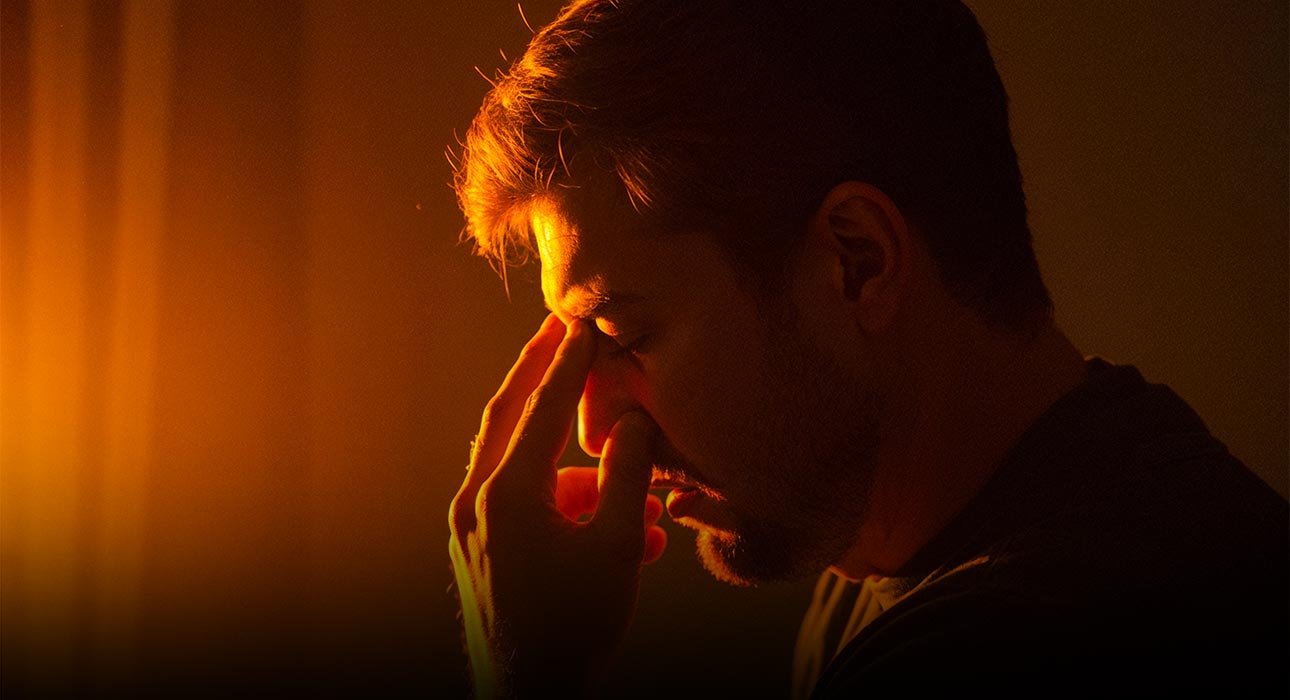Have you ever felt a quiet, peaceful afternoon break, and there is a voice inside you that asks, “Is your life ok?” And suddenly you remember all the situations where you felt alone and created an emptiness in you. The sudden expression of feeling disconnected, unmotivated, or lost creates emptiness in ourselves. Even though it is experienced by everyone in the world, it is hard to say “why it happens and how to get out of it.” Feeling emptiness is not just about mood; it’s a signal that your body gives to you, which may need attention.
What Is Emptiness?
According to the American Psychological Association (APA), it is defined as the lack of inner emptiness, meaninglessness, and absence of social connection and spirituality. They consider it a complex, a negative emotional state that can be a normal response to grief or loss. In other words, “Emptiness is a phase where the person experiences a void of emotions and feelings of discomfort in the chest.
For example, you went outside and you see the food you like, but you don’t have enough money to buy it. It creates an emotional hunger, and your mind and heart also create a craving for it, and when these needs are not met, it creates a feeling of emptiness. Similarly, when we have a tightly packed schedule in our workplace, we feel “I am okay,” but there is still something missing because of not meeting the emotional and spiritual needs.
Read More: How to Deal with Emptiness?
Confusion Between Loneliness and Emptiness
Loneliness and emptiness are two interconnected concepts, but have distinct and different emotional experiences that have a greater impact on one’s physical and mental health. Loneliness is said to be a complex emotional state where the person’s desired and actual social relationships are often understood as a negative experience caused by isolation or inability to express emotions.

Just being alone doesn’t mean they are experiencing loneliness; they experience a feeling of being disconnected from others, lack meaningful interactions, and search for deep and fulfilling relationships.
For example, Priya, a 21-year-old, moves away from her hometown to Seoul to pursue her dream as an artist. Leaving all her family and friends made her feel disconnected, as she didn’t have enough people to connect with, and it led to feelings of loneliness.
On the other hand, emptiness is described as a feeling of hollow, numbness, detached, doesn’t express emotions or lacks a sense of purpose and meaning in their life. They experience emotional numbness and being disconnected from oneself or others, and struggle to find fulfilment in the activities they do. For example, Raju is a successful businessman in the city of New York. He can buy anything, and he spends all his money, but he feels empty and unfulfilled and wonders what there is to do in his career and in life.
Read More: Loneliness: A Dual Threat to Mental and Physical Health
The Causes Of Experiencing Emptiness
The emptiness can be caused by various factors, such as not having proper sleep, being exhausted, experiences of boredom, grief, depression and loneliness after a breakup.
1. Loss of Connection With Others
We as humans have the natural ability to create social relationships with others that provide support and meaning. When the connection becomes weakened, it creates emptiness; the connection can be a friendship breakup, a family conflict or a social isolation in society. If you have cried all through the night due to a friendship breakup, the emptiness creates a void where the bond was, an absence of someone who stood for you and made you feel safe and comforted.
2. Unresolved Previous Emotional Pain
If we have any kind of past unresolved traumas or unprocessed emotions, that creates emptiness. For instance, when a person tends to be neglected in childhood or experiences rejection in the family or friends, abandonment might leave in feeling unworthy, and these suppressed emotions, like anger and sadness, are to be noticed and healed.
3. Lack of Purpose or Meaning in Life
We as humans create a purpose in our daily lives, such as a reason to get out of bed each day, to do work, and to engage with others. When our life feels misaligned with our values, it leads to emptiness. For example, Karina is the top student in her class at 98%, but still, she feels empty because her studies don’t connect with her goal or passion.
Read More: Importance of Finding Passion and Purpose in Life
4. Related to Mental Health
Emptiness is the basic symptom for developing mental health conditions like depression, anhedonia (the inability to feel pleasure), anxiety or, in severe cases, borderline personality disorder. When we are not able to express our emotions, it creates a chronic sense of inner void. Even without a diagnosed mental health condition, stress and burnout can drain you emotionally and cause feelings of emptiness. (Hein et al., 2024)
5. Pressure from the Culture and Society
Our society often appreciates productivity and external success, which we achieve through a disconnection from our inner selves and others. By social media. The feelings of inadequacy and comparison can make you feel like your life lacks an important thing compared to others. This external focus erodes our sense of self and leads to a hollow thing in our body. (group, n.d.)
Read More: Cultural Trauma: How communities hold grief across generations
How To Cope With Emptiness
There are many ways to stop feeling empty, and it depends on what’s causing it. There are some ways you can cope with the emptiness. They are:
- Acknowledging your emotions: When you experience a gap inside yourself, say to yourself that you are doing great and that this is the best you can give at the moment. We should not feel guilty or ashamed, or grieved about being empty.
- Create time for yourself: It’s common to distract ourselves with activities or situations to avoid facing our feelings. We should spend more time on ourselves, like chasing our desires, goals, passions and dreams. Giving time to ourselves in meditation, journal writing, or exercising can help to refocus ourselves.
- Explore your feelings: Exploring your current or present feelings can help you to understand why you are experiencing them, even though you don’t have to. Engaging in volunteering activities or pursuing your lifelong goal can help you explore your feelings.
- Connect with others: Being out with your family or friends can help you to feel better and help in reconnect with others. You can sit at the table with a cup of coffee and openly talk with others about your hobbies with the next person; it creates a basic step for connection and reduces the emptiness.
- Practice self-care daily: Practising self-care tips like mindful eating, meditation, yoga, and a skin care routine can help you to love and take care of yourself. Reminding yourself that what you see on the screen is not true; what is true is ourselves – the reality. (Psychcentral, n.d.)
Conclusion
Everyone in the world experiences emptiness as it is closely related to loneliness only few characteristics distinct them. By Acknowledging the causes of emptiness and finding ways to overcome can be a good and effective way to maintain a healthier life. Identifying why you are experiencing it, helps in understanding the deeper depths of other perspectives and helps in focusing towards it. You can cope up with the emotions by acknowledging it, Creating time for yourself, engaging on self care, journal writing, exercising can help you to get rid of the emptiness.
FAQs
1. What is emptiness?
The American Psychological Association (APA) defined emptiness as the lack of inner emptiness, meaninglessness, and absence of social connection and spirituality. Simply put, emptiness refers to feelings of hollowness or a lack of purpose in life.
2. How many people are experiencing emptiness in their lifetime?
There is no exact number, which explains people’s experiences of Emptiness in their day-to-day life. But we can say that at least every person in the world might experience emptiness in their lifetime.
3. Is there any direct cause for Emptiness?
Emptiness often stems from factors such as rejection, childhood trauma, emotional neglect, or a sense of disconnection from others.
4. What are the ways to cope with Emptiness?
There are some ways to cope with Emptiness, they are: practising self-care daily, knowing your emotions, creating time for yourself, practising meditation, and Journaling can help.
5. Is emptiness a basic symptom for developing a mental health Disorder?
Yes, emptiness can be a basic symptom of developing mental health issues. Such as depression, anxiety Disorders and in severe cases, it can lead to create borderline personality Disorder.
References +
Hein, K. E., Glass, I. V., Frankenburg, F. R., Fitzmaurice, G. M., & Zanarini, M. C. (2024). Emptiness in patients with borderline personality disorder: Severity and predictors of outcome over 24 years of prospective follow-up. Journal of Affective Disorders. https://doi.org/10.1016/j.jad.2024.11.075
Anon,2020. Feelings of Emptiness: Causes, Getting Help, & Ways to Cope. https://www.choosingtherapy.com/feelings-of-emptiness/
APA PsycNet. (n.d.). https://psycnet.apa.org/record/2020-71554-001
Grouport. (n.d.). Understanding and Managing Feelings of Emptiness | GroupOrt Journal. Grouport. https://www.grouporttherapy.com/blog/why-do-i-feel-empty













Leave feedback about this